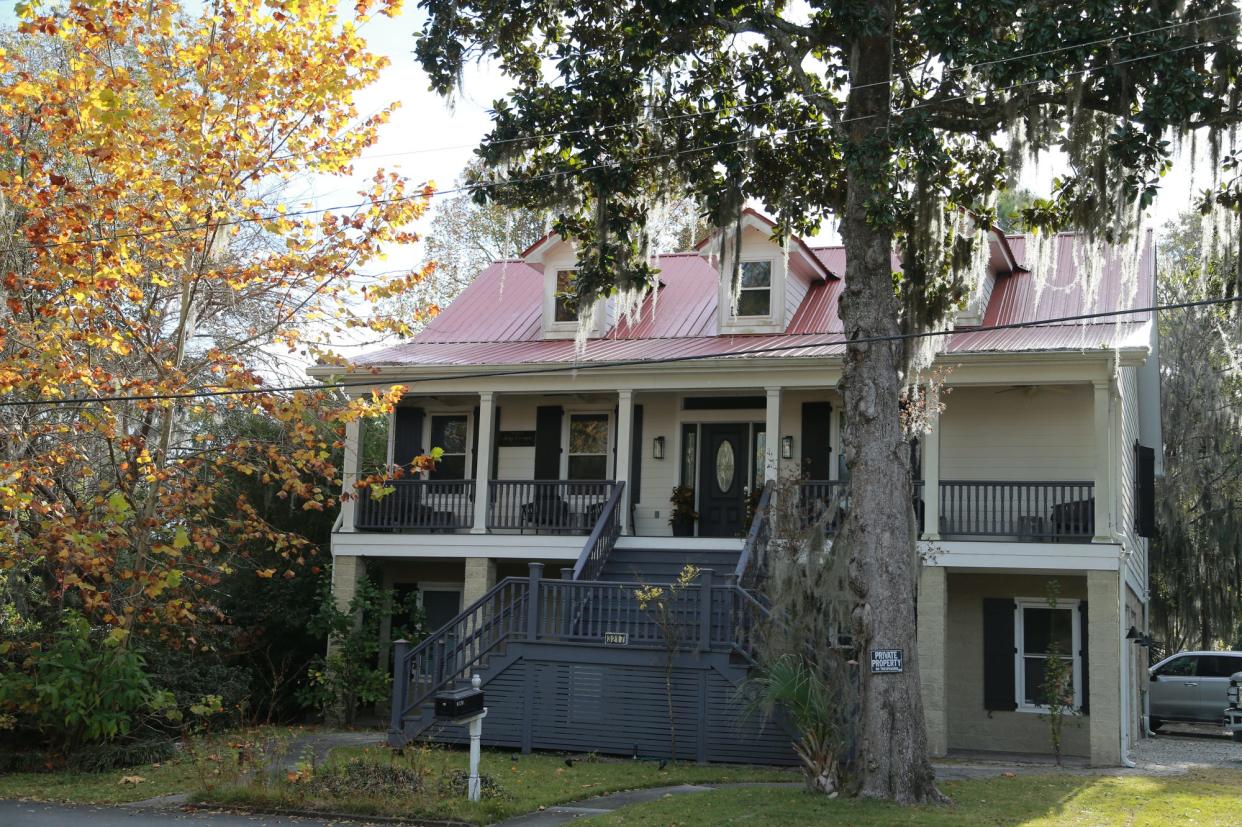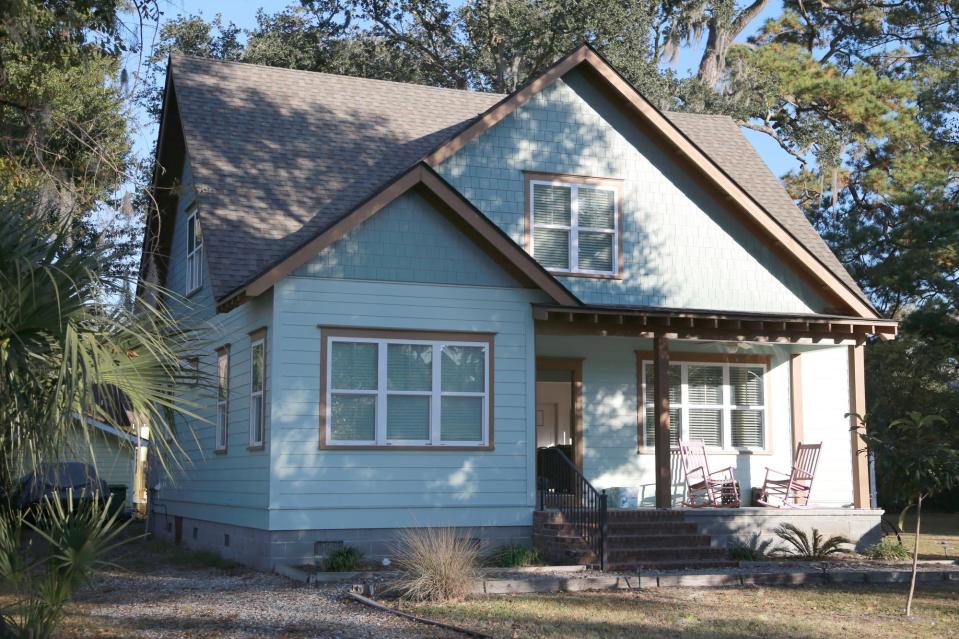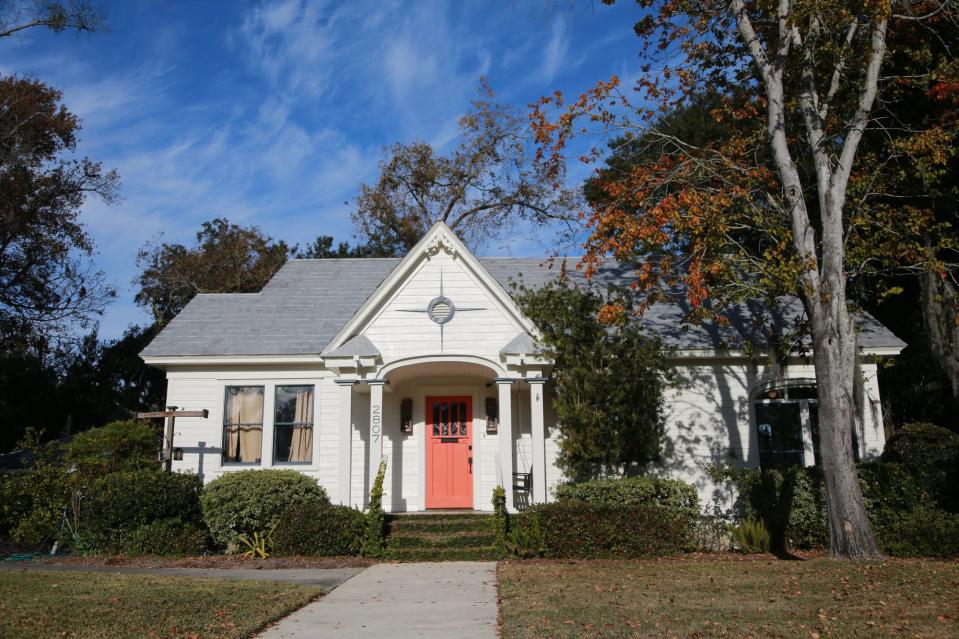Thunderbolt passes its first short-term vacation rental ordinance and hotel/motel tax

Thunderbolt has become the latest Chatham County municipality to establish regulations on short-term vacation rentals.
The town council passed ordinances capping the number of rentals and setting a bed tax during Wednesday's meeting. The vote was 5-0, with council member Ed Drohan recusing himself. Drohan owns an STVR in Thunderbolt.
Council members said the regulations are necessary help preserve Thunderbolt’s residential communities.
More: Thunderbolt Mayor-Elect Dana Williams: 'We don't want to lose our sense of community'
For every property operating as an STVR, that’s a loss in permanent residents and, therefore, a loss in population-based funding for the city.
“One thing that’s really concerning to me is, having lived out here for the past 50 years, is the decrease in population,” said Mayor Beth Goette.
Over the past decade, the number of permanent residents dropped to 2,556, a decrease of 4.2%, according to 2020 census data.

“During my campaigning, I researched every street out here and found out that this town is over 50% rentals, that includes long-term rentals,” said Goette.
The STVR ordinance most notably establishes a maximum number of 70 STVRs allowed within city bounds, which may be an overestimate of the current number, according to Town Administrator Bob Milie. STVRs are units rented out for 30 days or less often advertised on Airbnb, VRBO and other vacation rental sites.
The 70-property cap excludes owner-occupied rentals. Council agreed that the limit can be raised if more properties are discovered within the city.
The ordinance creates a registration system to allow the city to track STVRs. Existing and new rentals will have to register and pay a fee toward the city, as well as obtain a business license.
“In order to maintain the health, welfare and safety of the community and in particular the residential character of many areas of the Town that there should be a limit to the number of short- term rental properties located in a Town the size of the Town of Thunderbolt,” reads the ordinance.
Previously: Thunderbolt passes resolution for first hotel/motel tax
With a formal way of tracking STVRs, the hotel/motel tax can be implemented as well. Earlier in the year, the council passed a hotel/motel tax resolution approved at the state level.
Now, with both city ordinances in place, the bed tax, a 6% tax levied on STVRs can be collected. A portion of that revenue will fund tourism and marketing for the city.
City Attorney Charlie Barrow and Goette consulted with other Chatham County cities, specifically Savannah and Tybee Island, on their dealings with the STVR issue.
Savannah currently has a cap on STVRs of no more than 20% per ward. Tybee Island, which has endured prolonged, fraught debates on STVR regulation in recent months, is currently in an STVR moratorium to conduct studies on how to control the proliferation on the island.
On Tybee, STVRs make up about 48% of overall properties and 38% of properties in residential zones. Their prevalence has perturbed residents who decry the effects of tourism that destabilize a sense of community.

On the other side of the heated debate, some STVR owners view regulations as an infringement on their property rights.
Bill Brooks, who owns an STVR in Thunderbolt, said he’s a firm believer in property rights, but also believes that a cap is needed to preserve the neighborhoods.
“I believe in a reasonable cap, but how many is not for me to decide,” Brooks said, "though I do believe the current number should be kept."
As an owner, Brooks said he tries hard to be a good neighbor and keeps the property updated and kempt, so as not to disturb surrounding residents.
“I never had a call for police service since I owned this property,” he said.
Brooks, who lives in North Carolina, also points out that STVRs allow middle-class folks like himself to own a vacation home. He and his family travel to Savannah a couple times a year, he said.
“Savannah is one of my favorite places in the world,” said Brooks. “The rent pays the expenses of the property with a reasonable profit.”
Still, he doesn’t want “an overweight of rentals compared to permanent residents.” And, neither do Thunderbolt's more permanent residents.
“For the past five years, I could see what was happening,” said Goette “We really need the income and we’re landlocked. I don’t want to raise taxpayers' dollars."
Nancy Guan is the general assignment reporter covering Chatham County municipalities. Reach her at nguan@gannett.com or on Twitter @nancyguann.
This article originally appeared on Savannah Morning News: Savannah area's Thunderbolt passes first STVR ordinance and area tax

